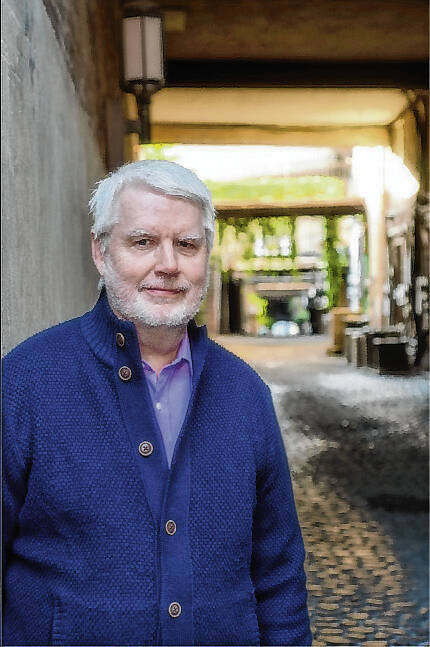
Carlson
I grew up in a time when most people in my town were members of one local church or another. I recall this with no intention of romanticizing an era when participation in religious life was so assumed that asking for one’s religious affiliation could be found on job applications.
In that environment, I remember a question that my friends in the neighborhood would sometimes ask in fun for the spirited debate that would follow. Even as I think back on that question now, I’m struck with how odd and out of date it seems. But it was a question that turned my friends and me into budding theologians. I suspect those conversations had something to do with what I ended up doing for a living.
The question we pondered was this: “If Jesus were to come back to earth this weekend, which church would he attend?” An odd question, right? But my neighborhood friends and I could go round and round on it. My Catholic friend, Stephen, pictured Jesus at Sunday Mass; my Methodist friends saw Jesus singing in their choir; my Pentecostal friends saw Jesus leading their more charismatic worship.
Certainly that question, which excluded all those whose religions do not have Jesus as a focus, reveals how dominant Christianity was in my town. If we thought of religious diversity at all, we thought that referred to the presence of Methodists, Lutherans, Baptists, Presbyterians, Pentecostals and Catholics.
All this I’d forgotten until, 10 years ago, I took some eager students to the Friday night service that begins the Sabbath at one of the Jewish synagogues in Indianapolis. We arrived early and after hearing a brief introduction to the worship service to follow, we sat respectfully toward the rear as families and individuals came in to take their seats.
I was impressed immediately with how lovingly the adults in the community greeted and talked with children as they arrived. I witnessed a quality of nurturing, of asking questions and listening patiently when the children responded, that was palpable and so obviously genuine.
Then, for some reason — maybe because I have spent nearly my entire working life studying biblical literature and history — a truth dawned on me. Jesus had been raised in a community like the one I was observing. He’d attended this same Friday night service every week of his life. He’d had elders in his synagogue pat his head, ask him a question and make him smile. Then it hit me. If Jesus came back the next weekend, I knew where he’d worship. He’d be here. He’d be at home.
Tragically, too often over the past 2,000 years, it has been easy and convenient for Christians to forget that Jesus was a Jew. Christianity, my faith, has too often turned on Jews and treated them as enemies.
Although anti-Semitism predates the rise of Christianity, Jews were most systematically denied property, citizenship, dignity and safety in countries where Christians dominated. Ghettos, where Jews were forced to live in crowded and walled-off neighborhoods, originated in Christian countries. It was in Christian countries where pogroms, or attacks on Jews, occurred nearly every year around Passover and Christian Easter. And it was in Christian countries where the Holocaust flourished.
Genealogy, finding and honoring our roots, is currently a popular hobby in our society. With anti-Semitism on the rise again in our country, it is a good time for Christians to remember something about our family tree. Christianity arose from the soil of Judaism. And it is a good time for Christians to remember and realize that our faith is still rooted in Judaism.
David Carlson of Franklin is a professor emeritus of philosophy and religion. Send comments to [email protected].